

WikiLeaks News (Releases):


This is a "WikiLeaks News Update", a daily news update of stories relating directly to WikiLeaks and also freedom of information, transparency, cybersecurity, and freedom of expression.
News
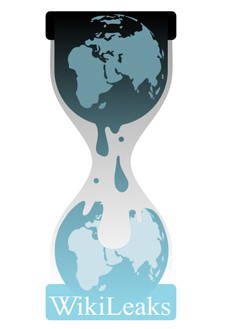
This is a "WikiLeaks News Update", a news update of stories that are obviously related to WikiLeaks and also freedom of information, transparency, cybersecurity, and freedom of expression.
Today is the fifth birthday of WikiLeaks.org! 5 years of crushing bastards a message on the official @wikileaks twitter account reads.

The domain was created on the 4th October 2006, at 05:54:19 UTC.
Founder Julian Assange has now spent a total of 301 days under house arrest without charge, an electronic bracelet that monitors all his movements attached to his ankle.
A decision on his extradition appeal is expected soon, the High Court of London having resumed its activity monday after a period of vacation.
Bradley Manning has now spent 497 days under pre-trial detention.
Upcoming WikiLeaks events, with the participation of Julian Assange or Kristinn Hrafnsson are listed below:
* Julian Assange will speak at the New Media Order Conference 2011, Istanbul (live from England), on the 5th October (tomorrow).
* On Saturday, the 8th October, an Antiwar Assembly will take place in Trafalgar Square, London, to protest the war in Afghanistan. Julian Assange is among the speakers which also include Jemima Khan, John Pilger, Peter Tatchell...

This is a "WikiLeaks News Update", a daily news update of stories that are obviously related to WikiLeaks and also freedom of information, transparency, cybersecurity, and freedom of expression. All the times are GMT.
10:20 PM A very comprehensive recent interview with Julian Assange by newspaper Russian Reporter where Julian discusses the strict bail conditions he is under, the financial blockade and other attacks against WikiLeaks, the possible return of the website’s anonymous electronic drop box and the present and future of the organization overall…
- Update: Another interview, published today in the printed version of German newspaper Sueddeutsche Zeitung, titled Julian Assange and how he sees the world covers similar topics. In it Julian mentions OpenLeaks founder and former WikiLeaks spokesperson Daniel Domscheit-Berg's possible cooperation with the Grand Jury investigation against WikiLeaks:
Assange: [Domscheit-Berg] took cash, hardware, material by our sources, e-mails, software and archive material written by me with him. This all happened in context with a workgroup of the CIA working against us and with the investigations by a Grand Jury in Washington.
SZ: Are you trying to say that Daniel Domscheit-Berg was part of that operation?
Assange: I think that Domscheit-Berg is an informant for the police.
SZ: Do you know that or think that?
Assange: His name appears nowhere in the documents of the Grand Jury while my own and the names of other individuals from our organization are listed there.

This is a "WikiLeaks News Update", a daily news update of stories that are obviously related to WikiLeaks and also freedom of information, transparency, cybersecurity, and freedom of expression. All the times are GMT.
10:00 PM Companies working with the Khartoum government enabled the perpetration of atrocities against civilians in Darfur.
09:20 PM A round-up of WikiLeaks news by newspaper The Zimbabwean:
The late army commander General Solomon Mujuru allegedly sent an emissary to the MDC without President Robert Mugabe’s knowledge in 2000 to warn the party about a planned violent crackdown.
Goodson Nguni, a well known Zanu (PF) activist, was named as the emissary. It is alleged that he negotiated a pact with the MDC whereby they agreed to an amnesty for current and past government officials, in return for an open dialogue about the possibility of forming a coalition government.
It has also been revealed that African diplomats have called for President Robert Mugabe’s ‘graceful’ exit from power. Leaders who, in the past, have stood by the octogenarian leader, have, according to Wikileaks, grown impatient with the Zimbabwean situation. (…)
08:50 PM Canadian multiculturalism policies were believed by Canadian officials to have affected the efficacy of anti-terrorism and anti-radicalization efforts.

This is a "WikiLeaks News Update", a daily news update of stories that are obviously related to WikiLeaks and also freedom of information, transparency, cybersecurity, and freedom of expression. All the times are GMT.
* Updated: Fourteen people arrested in the U.S., suspected of being in connection with the group that carried DDoS attacks on Paypal's website as a form of protest against the financial blockade that has been imposed on WikiLeaks.
* No legal grounds to prosecute Zimbabwe’s Prime Minister Morgan Tsvangirai based on diplomatic cables published by The Guardian, a panel has decided.
For more on this subject please read No Prosecution of Morgan Tsvangirai.
* A cable reveals how the United States was warned by Senator Heraclito Fortes, the Brazilian chairman of the Senate Foreign Relations and National Defense committee, against a collaboration between Iran, Russia, and Venezuela to promote ‘Anti-American’ ideology and make more arms available to radical populist governments in Latin America.
Venezuela’s interference and influence in the region, and a perceived closer relation between Iran, Venezuela, Bolivia and Ecuador were matters of concern.
Fortes told the Ambassador, poloff, and assistant army attache that he is "truly concerned" about Iranian and Venezuelan activities in the region, including financing "friendship organizations" between congresses and even potentially financing arms sales.
(...)
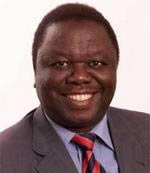 Morgan Tzvangirai will not be prosecuted, a Zimbabwean panel has determined, in connection with comments he made to US diplomats, revealed in cables published by the Guardian.
Morgan Tzvangirai will not be prosecuted, a Zimbabwean panel has determined, in connection with comments he made to US diplomats, revealed in cables published by the Guardian.
The Financial Gazette, a Zimbabwean English-language news weekly, reports:
A PANEL set up early this year to probe alleged treason by Prime Minister Morgan Tsvangirai and leading ZANU-PF critics, has recommended that there are no legal grounds to prosecute individuals on the basis of accounts contained in WikiLeaks files, The Financial Gazette has established. The panel, set up by Attorney-General (AG), Johannes Tomana, was composed of some of the country's top legal minds, in terms of Section 76 of the Constitution, to sift through the WikiLeaks cables for possible breach of the country's laws.
In January, the potential charges against Tzvangirai were seized upon in a Guardian opinion piece by GOP public relations consultant James Richardson, who proceeded to argue that any harm that might come to Morgan Tzvangirai would be attributable to Wikileaks as "collateral damage," since, he argued, Wikileaks had failed to redact information that might incriminate the Zimbabwean PM.
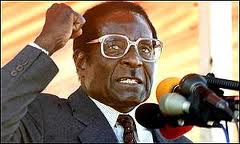 In anticipation of the upcoming election in Zimbabwe, president Robert Mugabe and his ZANU PF party have, in the words of Human Rights Watch's Africa director Daniel Bekele, "resorted to its old campaign tactics of suppressing political opponents by harassment and intimidation." Human Rights Watch has called for them to end their harassment and arbitrary arrests of civil society activists and political opponents, as reported recently on WL Central.
In anticipation of the upcoming election in Zimbabwe, president Robert Mugabe and his ZANU PF party have, in the words of Human Rights Watch's Africa director Daniel Bekele, "resorted to its old campaign tactics of suppressing political opponents by harassment and intimidation." Human Rights Watch has called for them to end their harassment and arbitrary arrests of civil society activists and political opponents, as reported recently on WL Central.
This Saturday, police lobbed tear gas canisters into church windows at St Peters Kubatana in Highfield, reportedly sending parishioners jumping out through windows, and baton-charged the service. Mugabe is a devout Catholic who attended the Pope's funeral in 2005 despite an EU travel ban. Pius Ncube, the Catholic Archbishop of Bulawayo, and an outspoken critic of Mugabe, said of the trip, "That man will use any opportunity to fly to Europe to promote himself. ... The secretary of state might be rather too busy right now to talk to him, but when someone in the family has died, you appreciate all the sympathy you can get from all people, even murderers, crooks and thieves like Mugabe." Pius Ncube was exposed in 2007 as having a relationship with a married woman, and subsequently forbidden by the Vatican from speaking out about the Mugabe government. Mugabe, a violent anti-homosexual, has enjoyed a high level of cooperation from the Vatican, who also allowed his marriage to his second wife Grace, who was not a Catholic.
The prayer meeting was called to remember the assault on Mugabe political opponent Morgan Tsvangirai and other civic leaders by Mugabe supporters on March 11, 2007. After the police attack, the meeting was taken to Glen Norah church where dozens of people were injured by riot police during a turnout of thousands, including Tsvangirai. Police threw more than thirty teargas canisters to disperse the people, assaulted some people who attended the prayer service including children and made Glen Norah impassable with the chaos.
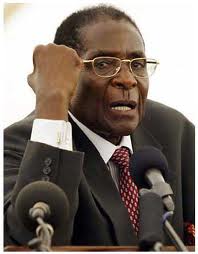 Robert Mugabe and his Zanu PF party have stepped up the customary rampage over human rights in Zimbabwe. Amnesty has issued an alert stating that with over 60 currently held in detention and many allegedly tortured, activists are facing a major clampdown.
Robert Mugabe and his Zanu PF party have stepped up the customary rampage over human rights in Zimbabwe. Amnesty has issued an alert stating that with over 60 currently held in detention and many allegedly tortured, activists are facing a major clampdown.
Previously on WL Central we reported on the arrest, imprisonment, and torture for some, of Munyaradzi Gwisai, the International Socialist Organisation (ISO) general coordinator, and 45 others on February 19. They were charged on the 23rd with treason, which carries the death penalty, or subverting a constitutionally elected government, for which the maximum penalty is 20 years imprisonment, for watching a video of the uprising in Egypt. More activists have been arrested in Bulawayo and Manicaland province.
SW Radio Africa reports a man in Bulawayo was arrested over a Facebook comment he posted on February 13. Vikas Mavhudzi of Old Magwegwe, is being charged with “subverting a constitutional government” after posting a message on a Facebook page allegedly belonging to Prime Minister Morgan Tsvangirai: “I am overwhelmed, I don’t want to say Mr. or PM what happened in Egypt is sending shockwaves to dictators around the world. No weapon but unity of purpose worth emulating, hey.” He was arrested on February 24th and accused of “advocating or attempting to take-over government by unconstitutional means”. He has been refused bail and was remanded in custody till March 9th.
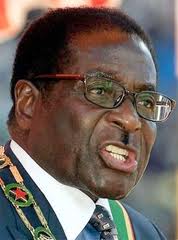 As reported earlier on WL Central, a million citizen march was planned for today in Harare, by a facebook group with currently 1292 members. While the march did not materialize, and neither did protests or demonstrations of any kind, the group is claiming a victory for provoking a reaction from the country's military and police. Armoured cars, trucks of riot police and Israeli-built water cannon vehicles had swept through Harare over the weekend, fanning out into townships around the city. Authorities gave no explanation for the display of force.
As reported earlier on WL Central, a million citizen march was planned for today in Harare, by a facebook group with currently 1292 members. While the march did not materialize, and neither did protests or demonstrations of any kind, the group is claiming a victory for provoking a reaction from the country's military and police. Armoured cars, trucks of riot police and Israeli-built water cannon vehicles had swept through Harare over the weekend, fanning out into townships around the city. Authorities gave no explanation for the display of force.
The failure of any protest materializing could have been due to the government reaction, or it could indicate, in a country where 15% of the population have internet access, that they simply had not heard of it. There is no mention of it on the Crisis in Zimbabwe Coalition website and they in fact have stated that they were not aware of it. Neither did it have any stated backing of any other local human rights or political opposition movements.
WL Central also reported earlier on the arrest, imprisonment, and torture for some, of Munyaradzi Gwisai, the International Socialist Organisation (ISO) general coordinator, and 45 others on February 19. They were charged on the 23rd with treason, which carries the death penalty, or subverting a constitutionally elected government, for which the maximum penalty is 20 years imprisonment for watching a video of the uprising in Egypt.
The United Nations High Commissioner for Human Rights Navi Pillay expressed her deep concern over the case today. "Many people in North Africa have said clearly and loudly that there is no democracy without freedom of expression and assembly. It is both ironic and disturbing that in Zimbabwe, activists are being arrested and abused for simply discussing the efforts in North Africa to bring change through peaceful demonstrations."
 Munyaradzi Gwisai, the International Socialist Organisation (ISO) general coordinator, and 45 others were charged in Zimbabwe today with treason, which carries the death penalty, or subverting a constitutionally elected government, for which the maximum penalty is 20 years imprisonment. The charges stem from a meeting the plaintiffs allegedly held, by invitation, and participants, although invited, were subjected to thorough vetting before being allowed into a room which was kept under lock and key. In this room they allegedly complained that "in Zimbabwe, there was a long authoritarian leadership , general hunger, poverty, unemployment and capitalist practices where wealth was enjoyed by a few individuals while the general populace of Zimbabwe was suffering."
Munyaradzi Gwisai, the International Socialist Organisation (ISO) general coordinator, and 45 others were charged in Zimbabwe today with treason, which carries the death penalty, or subverting a constitutionally elected government, for which the maximum penalty is 20 years imprisonment. The charges stem from a meeting the plaintiffs allegedly held, by invitation, and participants, although invited, were subjected to thorough vetting before being allowed into a room which was kept under lock and key. In this room they allegedly complained that "in Zimbabwe, there was a long authoritarian leadership , general hunger, poverty, unemployment and capitalist practices where wealth was enjoyed by a few individuals while the general populace of Zimbabwe was suffering."
The Times Live reports that a probe team has been appointed by Zimbabwe's attorney general to determine whether any of the leaked diplomatic cables are in breach of Zimbabwe's security laws.
"I am seeking a professional legal opinion from registered lawyers to see whether there is need to prosecute anyone following revelations by the Wikileaks website," Johannes Tomana, the attorney general told the state-run Sunday Mail.
"People should understand that this is a serious matter...after their recommendations, I will then decide whether there is need to open a docket against anyone.
"This is not a commission of inquiry, but a panel of experts whose recommendations will inform whether to prosecute anyone or not."
Tomana was quoted over the holidays as stating that
[T]he WikiLeaks appear to show a treasonous collusion between local Zimbabweans and the aggressive international world, particularly the United States. With immediate effect, I am going to instruct a team of practising lawyers to look into the issues that arise from the WikiLeaks.
However, he denied having made the statement and insisted that appointing an investigative team was beyond his power:
If you look at the scenarios around the appointment of commissions, it must be of national importance and it is only the president who can appoint a commission. I do not know where all this is coming from"
Early last week, The Guardian published an Op-Ed piece by a James Richardson, which attributed to Wikileaks all of the journalistic responsibility for possible fallout in the Zimbabwean government following from the release of the 09HARARE1004 cable.
I covered the initial James Richardson piece several hours after its publication, here on WL Central, where I pointed out that the Guardian in fact bears as much if not more responsibility for the consequences of the publication of any of the Cablegate cables, because it is in fact the media partners who greenlight and redact (or fail to redact) each of the cables, before they are forwarded to Wikileaks.
Here is my post about the inadequate correction by the Guardian, which was performed on Tuesday, a full week after the original article was published. Glenn Greenwald also covered the issue yesterday, in a comprehensive article on Salon.com. There was also some dispute about a minor detail of the case, which I covered here.
The Guardian's Alan Rusbridger yesterday responded to a tweet by Greenwald to the effect that The Guardian would "reply at greater length" to questions he had raised about the satisfactoriness of The Guardian's correction of its James Richardson piece.
In response to Glenn Greenwald's coverage of the Wikileaks-Guardian-Tsvangirai controversy and the Guardian's recent retraction, The Atlantic's Max Fisher tweeted an interesting point, which throws into confusion the issue of exactly what time Wikileaks released the 09HARARE1004 cable:
@ggreenwald Not trying to start a fight, but WL time stamp looks to be older than Guardian's? http://bit.ly/ghUUKc http://bit.ly/hHtH2u
and:
@ggreenwald Correct me if I'm wrong, but from these, it looks like WikiLeaks published 21 minutes before the Guardian.
Fisher is pointing out that the timestamp in the header of the 09HARARE1004 cable released on the Wikileaks website reads "2010-12-08 21:09"
The publication date of The Guardian's version of the cable reads "Wednesday 8 December 2010 21.30 GMT."
This would appear to indicate that Wikileaks published the cable on their website 21 minutes before The Guardian did.
This is an important point, and it raises an issue I have been contacted about recently.
Last week, The Guardian published an article by James Richardson, a political and communications consultant who has worked in electoral campaigns for the Republican Party in the United States, in which Richardson aggressively criticized Wikileaks for the release of 09HARARE1004, a cable that, he argued, gave Robert Mugabe's faction within the Zimbabwe government a pretext for bringing a high treason trial against Morgan Tsvangirai.
I outlined here on WL Central how The Guardian was in breach of its journalistic duty in the publication of the piece.
Tech Eye reported on an attack on various Zimbabwe government websites by Anonymous in response to censorship of WikiLeaks cables:
Graham Cluley writes from his bog, AKA Naked Security: "Grace Mugabe, wife of Zimbabwe president Robert Mugabe, was recently reported to be suing a newspaper for $15 million after it published a WikiLeaks cable that claimed she has benefited from illegal diamond trading."
Now government websites, including the Ministry of Finance, have been hacked and suffered from DDoS attacks. One page displays an outline of a black suit with the message: "We Are Anonymous. All your base are belong to us. We are Anonymous. We are Legion. We do not forgive. We do not forget. Expect us..."
A Jan 3, 2011 article in the Sydney Morning Herald also covers the Zimbabwe attacks. Anonymous moved on to the Tunisian government on Jan 2.
Foreign Policy provides a summary by country of US state policy for Somalia, Sudan, Zimbabwe, Pakistan, Kenya, Nigeria, Burma, North Korea, Eritrea, including what the state cables have so far revealed.
By now, you've read the WikiLeaked headlines, illuminating the inner workings of U.S. policy in Iraq and Afghanistan, or detailing the intractable regimes in Iran and North Korea. But what does Cablegate have to say about the world's forgotten conflicts -- the dimmer outposts of U.S. influence where Washington arguably has even bigger messes to confront? FP went through the archives with an eye to our 2010 Failed States issue to see what light the cables shed on these benighted places -- and whether the cables themselves may disrupt the often delicate balancing act of diplomacy.
Theme by Danetsoft and Danang Probo Sayekti inspired by Maksimer